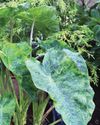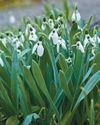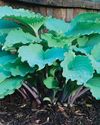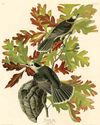
Evergreen shrubs and trees provide structure, screening and four-season interest for our foundation borders-a backbone, so to speak. But what happens when said backbone gets bent out of shape?
Increasingly, deer just love a buffet of evergreen favorites like camellia, yews, azalea and rhododendrons. Other go-to's like privet, leatherleaf mahonia and nandina have become invasive in some locations. Our native hemlocks and redbays and the non-native garden-staple boxwoods are threatened with widespread pests and disease, further limiting their use.
Where does all this leave us as we're planning gardens? In the face of such stressors-along with a changing climate-it's important to expand our repertoire and consider alternatives already here.
A good handful of native evergreen shrubs from northern and southeastern North America, some of them old favorites and some lesser known, are proving increasingly useful well outside their natural ranges. They're more than up to the task of keeping the evergreen backbone straight and looking its best.
JUNIPERS
For full sun conditions in nearly any soil, junipers (Juniperus) are a prime ingredient for mixed screening. The wide-ranging, confusingly named eastern red cedar (J. virginiana; USDA Zones 4-9), once a common choice for hedgerows and windbreaks, now offers very refined selections.
These cultivars recommend red cedar for garden space again, making great wildlife-supporting replacements for arborvitae and other true cedars (Thuja), especially where deer are bothersome.
This story is from the November - December 2022 edition of Horticulture.
Start your 7-day Magzter GOLD free trial to access thousands of curated premium stories, and 9,000+ magazines and newspapers.
Already a subscriber ? Sign In
This story is from the November - December 2022 edition of Horticulture.
Start your 7-day Magzter GOLD free trial to access thousands of curated premium stories, and 9,000+ magazines and newspapers.
Already a subscriber? Sign In

Pot It Up
Shake up the containergarden with theseNorth America –native perennials

THE GARDEN PATH TO PERDITION
I WAS CRUISING RIGHT ALONG, feeling okay about myself, when I came across a list of the Seven Deadly Sins.

A Productive PATIO
Tiny fruit, vegetable and herb plants help gardeners maximize any sort of growing space

TROPICAL FUSION
A FUSS-FREE APPROACH TO USING BOLD TROPICAL PLANTS IN ANY TEMPERATE GARDEN

WINTER READING
Pass the time with any of these inspiring books

SENSING A PATTERN
Greg Coppa reflects on an odd weather year and what continued warming may mean for his Rhode Island garden

TOP-PRIZE PERENNIALS
A foliage masterpiece for shade and a late bloomer for sun

MARK WESSEL
What's new for fruit and vegetable gardeners?

KINGS OF THE NORTHERN FORESTS
A look at the trees, shrubs and perennial plants that bolster life in Ecoregion 5

PROJECT FEEDERWATCH
Gardeners can help scientists know just where the birds are in winter